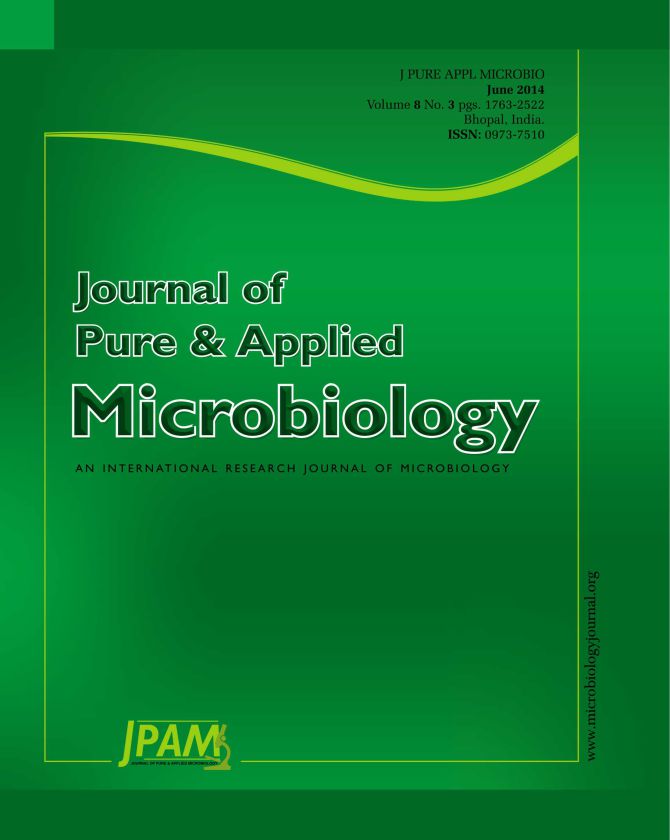An endophytic fungus was isolated from leaf of Pteris pellucida collected from Arunachal Pradesh, India during April, 2011. Microscopically it was identified as Aspergillus species but later authenticated as Emericella quadrilineata applying molecular technique. The bioassay profile of E. qudrilineata includes antibacterial, antifungal and antioxidant activities. The growth conditions were optimized for improved production of bioactive metabolites and enhanced bioactivity against pathogens. Potato dextrose broth (PDB) has been found to be the best medium for growth and production of metabolites amended with different carbon and nitrogen sources. PDB with -0.1% starch was found to increase the antimicrobial activity against pathogenic bacteria such as Staphylococcus aureus and Aeromonas hydrophila. Incubation period of 25 days coupled with 25ºC temperature were the most suitable for better production of bioactive compounds. E. quadrilineata had shown salt stress tolerance from 10 mM to 100 mM NaCl when incubated for 21 days at 26 ºC. The antimicrobial activity of E. quadrilineata was elevated only from 10 mM to 30 mM NaCl, whereas relatively it showed low activity above 40 mM. This endophyte had also shown antifungal activity against Fusarium oxysporum, Corynespora sp., Aspergillus niger and Curvularia sp. Apart from antimicrobial activity, the culture also exhibited remarkable antioxidant activity. After exploring the culture condition such as media formulation, temperature, incubation time and salt stress, it is evident that different culture conditions affect the production of biomass and activity of bioactive compounds.
Antibacterial, Antifungal, Fungal endophyte, Inhibition zones, Natural products, Salt stress
© The Author(s) 2014. Open Access. This article is distributed under the terms of the Creative Commons Attribution 4.0 International License which permits unrestricted use, sharing, distribution, and reproduction in any medium, provided you give appropriate credit to the original author(s) and the source, provide a link to the Creative Commons license, and indicate if changes were made.


